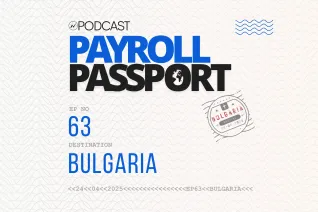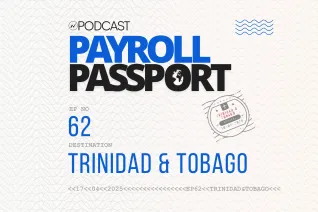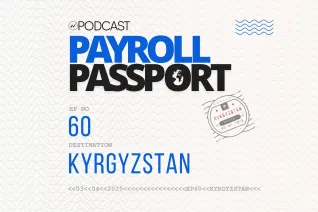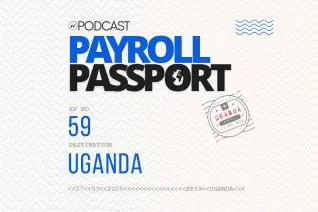Country Spotlight: Payroll in Costa Rica
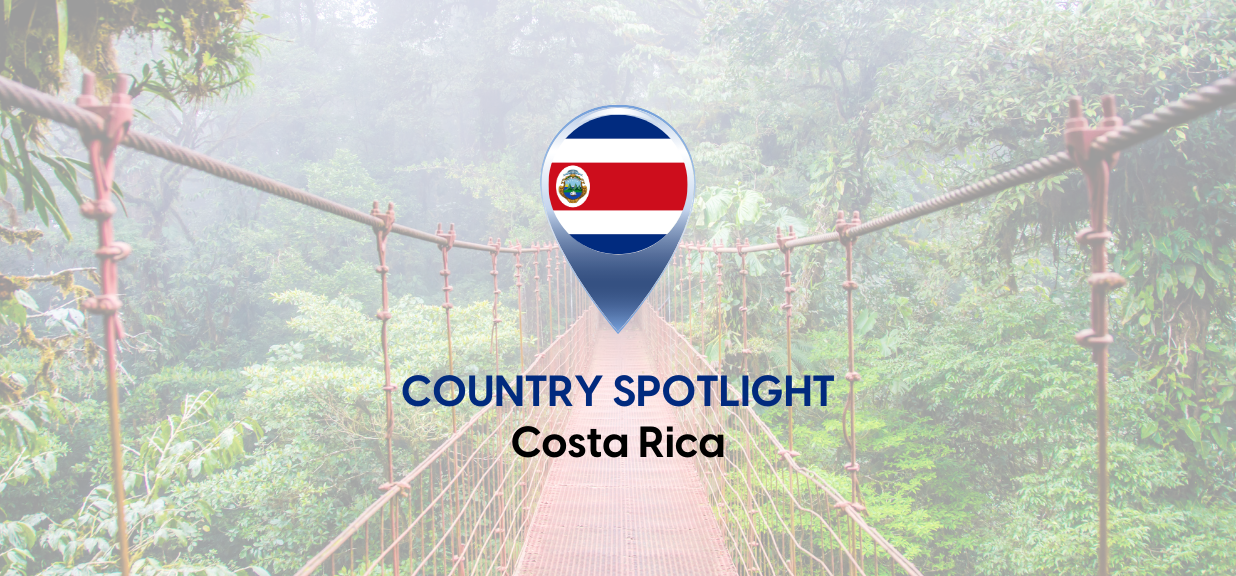
Costa Rica's vibrant economy and dynamic workforce have propelled its success globally. However, navigating the nation's payroll landscape is a complex endeavor that requires a nuanced understanding, much like appreciating the intricate flavors of its traditional cuisine.
Imagine a country that, despite occupying a mere 0.03% of the Earth's surface, is home to an estimated 5% of the world's known species! From lush rainforests teeming with exotic wildlife to colorful coral reefs brimming with marine life, the nation's biodiversity is a fitting analogy for the complexity of its payroll system.
Just as Costa Rica's ecosystems are intricately intertwined, its payroll regulations weave an intricate web of labor laws, tax codes, and cultural norms. Mastering this tapestry demands a nuanced understanding of the nuances shaping employee-employer relations in this unique nation.
ALSO READ I : Costa Rica: A Guideline to Payroll and Employer of Record
Unveiling the Essentials of Costa Rican Payroll
Contrato de Trabajo: The Foundation
As with most countries, a formal employment contract (Contrato de Trabajo) establishes the groundwork for the employer-employee relationship in Costa Rica. This contract, a legal requirement, typically details the employee's job title, responsibilities, compensation package (including benefits), working hours, and termination clauses. Ensuring these contracts comply with Costa Rican labor laws is paramount to avoid legal complexities. Understanding the unique elements of these contracts, such as the 'thirteenth salary' and 'severance pay' provisions, is crucial for employers.
Three identical employment contracts must be submitted within 15 days - one for the employer's records, one for the employee, and one to the Employment Bureau of the Ministry of Labour and Social Security. Employers must provide a written job description for temporary work assignments and compensate workers on a monthly 30-day cycle.
Impuesto sobre la Renta: Decoding Income Tax Terrain in Costa Rica
Costa Rica's tax system incorporates income tax deducted directly from employee salaries. The progressive income tax structure means that higher earners contribute a larger percentage of their income towards taxes. The current tax rates range from 0% to 25%, applicable to increasing salary brackets. There is a tax-free threshold for income below a certain amount.
Seguridad Social: A Social Safety Net
Costa Rica boasts a robust social security system called Caja Costarricense de Seguro Social (CCSS or Costa Rican Social Security) that provides a safety net for employees. This system, financed by both employers and employees, offers comprehensive healthcare, pensions, and unemployment benefits. Employers are responsible for accurately calculating and withholding employer and employee contributions (social security contributions) from salaries. Staying updated on any changes in contribution rates and regulations is crucial to ensure compliance and maintain the benefits this system provides to employees.
In situations like this, using a Global Payroll provider such as Neeyamo is not just a strategic move but a necessity. Combing through Costa Rica's income tax and social security may feel like finding a needle in a haystack due to its intricate combination of salary schemes, varying contribution rates, and exemptions. Neeyamo could drastically reduce your workload and streamline the process from calculations to filings. Also, Neeyamo's native payroll engines can automate the calculation of employer and employee CCSS contributions based on each employee's salary. This can help ensure accurate and timely payments to the CCSS, avoiding any penalties or late fees and giving you the confidence to focus on your business operations.
Descomprimiendo las Prestaciones: Unpacking Employee Benefits
Costa Rican employees are entitled to a comprehensive package of benefits, including:
Paid Leave: Employees receive paid vacation leave (typically a minimum of two weeks per year), paid sick leave (with durations varying depending on circumstances, with a minimum of 22 days), and paid public holidays (number of days can vary).
Maternity Leave: New mothers are supported by a generous paid maternity leave policy. Female employees can expect up to four months of paid maternity leave, with birth and three months typically covered. In addition to generous maternity leave provisions, female employees cannot be fired during pregnancy and are restricted from working certain hours during pregnancy.
Fathers are not left out – they are entitled to paid paternity leave, usually around two weeks.
Severance Pay: Employers must provide severance pay to employees who are terminated without cause and after a minimum employment period. The amount is calculated based on time worked and has a cap.
Working Hours and Overtime: The standard work week in Costa Rica is 48 hours, with overtime pay kicking in after those hours are surpassed. Overtime rates vary and can be significant depending on the day. Sunday overtime pay is double the regular rate, and nighttime overtime (from 7 pm to 6 am) is time and a half. Using a time management system such as Neeyamo Time would ease employers' workload and simplify overtime calculations.
Female Employees: Costa Rica has strong legal protections for female employees. In addition to generous maternity leave provisions, female employees cannot be fired during pregnancy and are restricted from working certain hours during pregnancy.
Mandatory Thirteenth Salary: Costa Rican employees are entitled to a mandatory thirteenth salary payment in December. This bonus is typically calculated as one month's base salary but can be prorated based on the employee's time worked during the year.
Compliance is Key
Understanding and adhering to Costa Rica's labor laws, including employment contracts, minimum wages, working hours, social security contributions, and employee benefits (including paid time off like sick leave, vacation days, and maternity leave), is not just a legal requirement, but also a strategic move for business success in the country. Partnering with a global payroll provider like Neeyamo, with expertise in Latin America and Central America, can ensure streamlined payroll processes, minimize non-compliance risk, and give you peace of mind to focus on growing your business in Costa Rica.
Costa Rica's a fantastic market for expansion, but navigating payroll complexities can sink your progress. From ever-changing tax regulations to employee benefits and local leave policies, ensuring timely and accurate payments is a minefield.
Don't let payroll become an anchor. Neeyamo's Global Payroll solutions are your life raft. Our team dives deep into local compliance, keeping you afloat amidst regulatory changes. We streamline the entire process, handling everything from calculations to filings. Focus on building your Costa Rican presence, not drowning in paperwork. Partner with Neeyamo and breathe easy – we'll handle the payroll.
To gain more insights from our global experts, contact us at irene.jones@neeyamo.com
Latest Resources
Stay informed with latest updates
If you're curious and have a thirst for knowledge pertaining to the HR, payroll, and EOR universe, don't miss out on subscribing to our resources.





